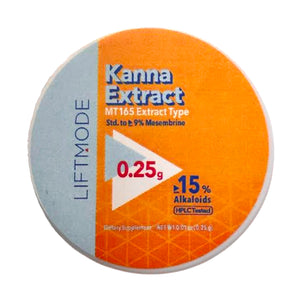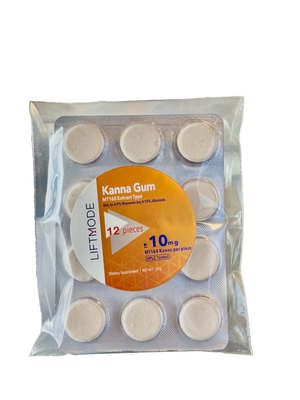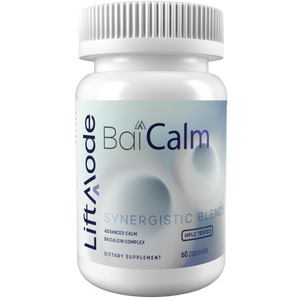Choline bitartrate is the salt form of choline, an important essential nutrient. This wonderful compound has a number of great effects on both your brain and your body. Choline bitartrate supplements produce a number of Nootropic effects including improved memory, cognitive boosts, and mental stimulation.
Not only this, but choline bitartrate is great at protecting your body and health. It is a powerful anti-inflammatory, offers great protection for your heart, and is great for post-menopausal women. So, with Choline Bitartrate, you get amazing Nootropics effects along with reducing your risk of health issues. Sound good? Read on!
![]()
Choline improves your cognitive performance
Why is choline good for your brain?
1. Supports memory
Choline has remarkable effects on your memory and your brain. A number of scientists have examined the importance of choline for the proper development of the brain.
One study found that choline is an essential part of the development of the hippocampus in animals. Although no human studies have been done, the study showed that choline was important for brain development.
[1]
Another study, again with animals, confirmed these findings and concluded that choline is a requirement for the proper development of memory in children and infants. It suggested that pregnant women need to pay extra attention to dietary choline.
[2]
2. Improves cognition
Another great benefit of choline is that it improves your cognitive performance. One large human study, with 1391 participants, found that higher dietary choline intake was associated with lower rates of white-matter hyperintensity and better cognitive performance.
[3]
[caption id=""attachment_903"" align=""alignright"" width=""300""]
![]()
An elephant never forgets! Choline boosts your memory[/caption]
Scientists confirmed this in a second study, concluding that choline has an important role in brain function and cognitive performance, especially in older people. Again, high choline diets prevented white-matter hyperintensity and produced better memory scores.
[4]
3. Stimulates the mind
Choline is the direct precursor for acetylcholine, the ‘learning transmitter’. Your brain transforms choline into acetylcholine to allow it to function properly. Acetylcholine is involved in transmitting signals across neurons. You really can’t overstate how important acetylcholine is to your brain.
[5]
Studies have found that acetylcholine is a vital molecule for learning and memory. This is why it’s called the ‘learning transmitter’.
[6]
Acetylcholine also has stimulant effects in your brain. It gives you more mental energy and makes your mind more alert. Many stimulants interfere with acetylcholine function, often causing your brain to produce more acetylcholine.
[7]
[caption id=""attachment_900"" align=""alignright"" width=""640""]
![]()
Choline is great for your body too![/caption]
How is choline good for your body?
1. Anti-inflammatory
Scientists have conducted a number of studies that looked into the importance of choline in your diet. The amount of choline that each person requires depends on a number of genetic factors.
A number of studies have shown that choline is effective at reducing inflammation. Chronic inflammation, as a result of stress, an animal-protein-rich diet, smoking, and alcohol use, greatly increases your risk of developing serious diseases.
[8]
Recent studies have shown that dietary choline has an important role to play in helping your liver, brain, and overall health.
[9]
2. May help to maintain a healthy heart
[caption id=""attachment_904"" align=""aligncenter"" width=""300""]
![]()
Choline protects against heart disease[/caption]
Homocysteine is a dangerous by-product of human metabolism and is known to increase your risk of heart disease. High homocysteine levels often occur as a result of a lack of vitamin B12 (from microorganisms), B6, or folate (from vegetables).
Scientists have shown that choline significantly reduces your homocysteine levels.
[10]
3. Great health promotor for post-menopausal women
You get most of your choline from your diet, but a large amount of it is also produced inside your body. The estrogen hormone is vital for the production of choline. After menopause, your estrogen levels are left depleted. This results in lower choline production.
Low choline levels, as we’ve seen above, are related to a number of diseases, so supplementing with choline is a good idea!
[11]
What is choline found in?
You'll find choline in nearly all plants and animals. It is an ancient molecule and is part of the biochemistry of all living things.
Some of the foods that are highest in choline include:
Vegans and vegetarians can get their dietary choline from other sources including:
- Soymilk
- Bananas
- Cereals and oats [13]
[caption id=""attachment_901"" align=""alignright"" width=""300""]
![]()
Liftmode Choline, 99%+ purity[/caption]
For most people, even vegans and vegetarians, a balanced diet contains more than enough dietary choline to keep you healthy.
However, it’s not possible to get the Nootropic effects of choline through your diet. Even in the foods that are richest in choline, the concentration is too low to realistically provide Nootropic effects. This is why we suggest using a choline supplement.
What forms of choline are there?
Choline bitartrate is the salt form of choline. Bitartrate is an added chemical group to prevent the choline from going ‘off’. In this form, choline is stable and readily available to be metabolized by your body.
People often ask about two other forms of choline:
What is choline salicylate? and what is choline chloride?. These are simply two different forms of choline. However, choline bitartrate is the easiest to manufacture and the most stable form.
Conclusion
[caption id=""attachment_905"" align=""alignright"" width=""287""]
![]()
Liftmode Choline, 99%+ purity[/caption]
In conclusion, choline is a very important molecule that helps your brain and your body to function properly. What is choline good for in the brain? It improves your memory, boosts your cognition, and stimulates the mind. What is choline good for in the body? It is a potent anti-inflammatory, protects from heart disease, and is vital for a number of key functions.
Choline deficiency is causes a number of diseases. However, most people get enough choline in their diets to remain healthy. However, choline supplements are the only way to access the incredible Nootropic effects!
Medical Disclaimer
Not intended to treat, diagnose, or cure any disease or ailment. Please read and fully understand potential adverse effects before using this product. These statements have not been reviewed by the FDA and are not written by a medical professional. Please consult your doctor before using any supplements, especially if you have any medical conditions. Tristan
B.Sc. in Molecular Biology and Biochemistry Researched & written by
Tristan and verified by the Liftmode.com Research Team
References:
[1] The fetal origins of memory: the role of dietary choline in optimal brain development, SH Zeisel, J Pediatr. 2006 Nov;149(5 Suppl):S131-6, available from
http://www.ncbi.nlm.nih.gov/pubmed/17212955
[2] Choline: needed for normal development of memory, SH Zeisel, J Am Coll Nutr. 2000 Oct;19(5 Suppl):528S-531S, available from
http://www.ncbi.nlm.nih.gov/pubmed/11023003
[3] The relation of dietary choline to cognitive performance and white-matter hyperintensity in the Framingham Offspring Cohort, C Poly et al., Am J Clin Nutr. 2011 Dec;94(6):1584-91. doi: 10.3945, available from
http://www.ncbi.nlm.nih.gov/pubmed/22071706
[4] Choline and choline-related compounds are associated with cognitive performance and cerebrovascular pathology in older adults, A Roe et al., April 2014, The FASEB Journal,vol. 28 no. 1, Supplement 135.5, available from
http://www.fasebj.org/content/28/1_Supplement/135.5
[5] Muscarinic acetylcholine receptors: signal transduction through multiple effectors, CC Felder, FASEB J. 1995 May;9(8):619-25, available from
http://www.ncbi.nlm.nih.gov/pubmed/7768353
[6] The Role of Acetylcholine in Learning and Memory, M.E. Hasselmo, Curr Opin Neurobiol. 2006 Dec; 16(6): 710–715, Published online 2006 Sep 29. doi:10.1016, available from
http://www.ncbi.nlm.nih.gov/pmc/articles/PMC2659740/
[7] The effect of central stimulant drugs on acetylcholine release from rat cerebral cortex, B.A. Hemsworth, M.J. Neal, Br J Pharmacol. 1968 Nov; 34(3): 543–55, available from
http://www.ncbi.nlm.nih.gov/pmc/articles/PMC1703481/
[8] CHOLINE SUPPRESSES INFLAMMATORY RESPONSES, W.R. Parrish et al., Shock: June 2006 - Volume 25 - Issue 6 - p 45, available from
http://journals.lww.com/shockjournal/Fulltext/2006/06001/Choline_Suppresses_Inflammatory_Responses.137.aspx
[9] Choline: an essential nutrient for public health, SH Zeisel, KA Da Costa, Nutr Rev. 2009 Nov;67(11):615-23. doi: 10.1111, available from
http://www.ncbi.nlm.nih.gov/pubmed/19906248
[10] Choline supplemented as phosphatidylcholine decreases fasting and postmethionine-loading plasma homocysteine concentrations in healthy men, M.R. Olthof et al., Am J Clin Nutr July 2005 vol. 82 no. 1 111-117, available from
http://ajcn.nutrition.org/content/82/1/111.full
[11]Dietary choline requirements of women: effects of estrogen and genetic variation, LM Fisher et al., Am J Clin Nutr. 2010 Nov;92(5):1113-9. doi: 10.3945, available from
http://www.ncbi.nlm.nih.gov/pubmed/20861172
[12] Foods Highest in Choline, Nutrition Data, available from
http://nutritiondata.self.com/foods-000144000000000000000-1w.html, retrieved on August 22, 2016
[13] Choline, Jack Norris, RD, April 2013, VeganHealth.org, available from
http://www.veganhealth.org/articles/choline




